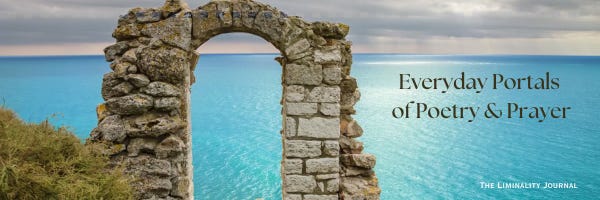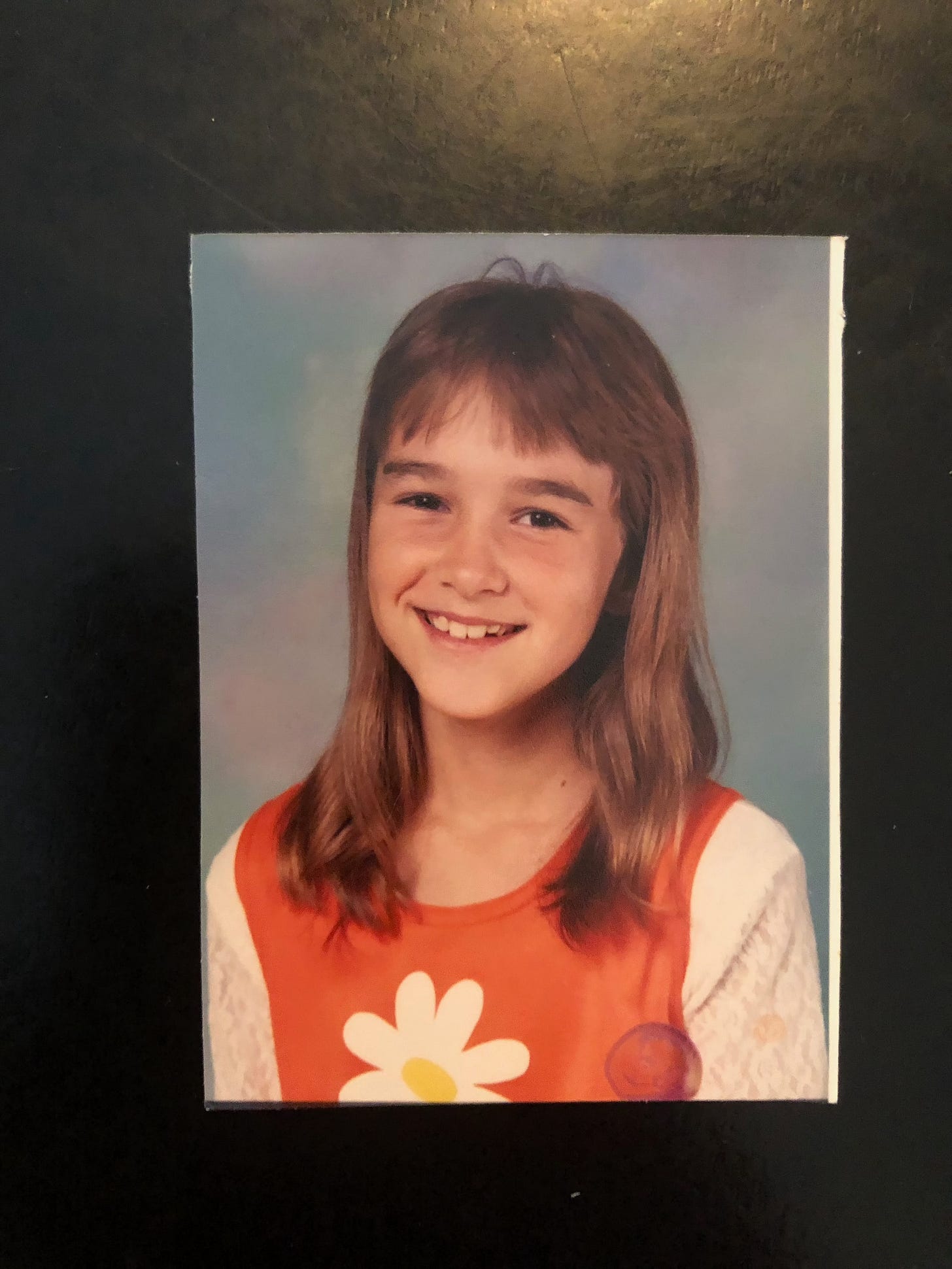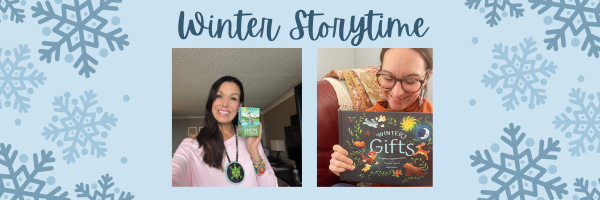I would like to live like a river flows, carried by the surprise of its own unfolding. John O'Donohue
Friends,
Have you ever prayed to a river, to the sky or stars, to Mother Earth in all of her complex being?
Have you ever prayed to a god you’re not sure you believe in? Have you ever prayed to the open air in hopes that someone, somewhere, will notice? Have you ever prayed to your ancestors as you ask for guidance in this one precious life?
You’re not alone. Prayer, in fact, may be one of the most universal things about us as humans, a longing to connect our inner world with the world around us, with the cosmos, with the Infinite.
In this series on portals of poetry and prayer, we’ve thought about how prayer is a childlike portal to the Sacred, and we’ve considered how we are harmed by the ideas and institutions we’ve created around prayer.
When we begin to come to terms with this, that we live in a world in which, perhaps, prayer can become distorted, a thing used for power and control over one another and the earth, we have to ask who we are praying to now.
As we’ve grown older, as we’ve been shaped by our experiences in the world, both individual and collective, how do we understand who or what we are praying to?
When I was young, it gave me a lot of comfort to think of God as a Father, Abba, protector, caregiver. I think, probably, because my relationship to my own father was strained, confusing, nonexistent in some ways. I was comforted by this idea of a father-like figure in my life.
The flip side of this, though, was the southern baptist, colonial idea of God as brutal father, God as Zeus-like judge. So while I had this tenderness toward who I understood God to be, I had this confusing idea of a very judgmental, patriarchal god as well.
It was one of the most confusing aspects of my faith (and probably still is, if I’m honest). As I was writing my first book, Glory Happening, I’d discovered the work of Richard Rohr and the deep histories of the desert fathers and mothers—an expansive idea of God as Mystery. It freed me.
I needed this desperately, and in many ways, it connected me to things I couldn’t yet name but have since understood, an understanding that my Potawatomi and Celtic ancestors understood, ideas and embodiments of God in a world connected by love and kinship and tenderness.
In 2020 I spoke at Baylor University to a group of students in which a small, right-wing conservative group decided to verbally attack me and continue the pursuit with online vitriol even after I went back to Atlanta where I’d lived. They were angry that I used the term “Mother Mystery” in one of my prayers, which I actually didn’t, but once they spoke it, I knew it would be a powerful moment to reclaim our ideas of the sacred once again.
So I wrote this in protest:
Mother Mystery,
Comfort those who cannot be comforted by a government that continually fails them.
Comfort those whose leaders blame them for their oppression.
Comfort the children, the elderly, the tired, the immunocompromised.
Comfort those who nobody listened to.
Turn us back again and again to the goodness of this earth,
that we may remember what it means to be in awe, even when it’s hard.
Fill us with an urgency to practice our communal calling as people, to decolonize our ways of individualistic selfishness.
Draw us together, to you, to a vision of a better way.
We rest in your holy goodness.
We rest in knowing that
winter will hold us as we ask what it means to be
human right now.
Onward and amen.

Yes, what if we pray to God as Mother? What if we pray to God as Mystery? What if we expand and expand and expand, the light and love expanding within and without us?
Just as we approach prayer with childlikeness, just as we ask big questions about how our ideas of prayer can harm, we get to ask who or what we understand we are praying to.
I often ask myself who I pray to.
Kche Mnedo
Mamogosnan
Segmekwe
Brigid
The Sacred
Mystery
My ancestors
Future generations
The Universe
The trees
The ocean
God, maybe
We have ideas of how to heal the world, how to heal ourselves, and we access that power through prayer. We access it when we become expansive enough to imagine a better world, a world grounded in kinship and love.
If, in the deepest parts of our souls, we long for kinship and love and want to be guided by them, then who or what we pray to will be fueled by that sacred fire, the fire of belonging and reciprocity.
That’s how interfaith work makes sense—we hold that solidarity in how we pray, and respect who we pray to, while holding the tenderness of our own humanity in the balance of it all.
I guess, what I’m trying to say, is that I don’t really care who you pray to, but what you embody as you approach prayer, because that changes everything.
Maybe the whole point of this isn’t to get the right answers, anyway. It’s about expanding beyond ourselves into the sacred imaginal, as Cynthia Bourgeault describes it:
…it is also and primarily supremely the realm of cosmic assistance. It is the “place” from which saints, teachers, masters, and all manner of abler souls reach out across the apparent divide between the worlds to support or where necessary modify earthly outcomes in tandem with willing and attuned hearts here below.
In other words, we shape our souls, our inner world, around love and care and kinship, and when we pray, we take that with us, and whoever we pray to holds it all with us, and the whole world changes a little because of that moment. How beautiful.
Mirabai Starr writes in her book Ordinary Mysticism
The liberation of all beings is tied up with your own awakening.
So, we awaken. We expand. We ask questions. We stay childlike. We wonder who’s listening. And we keep praying, because prayer is a sacred portal.
I recently spoke to a local elementary school, and it was such a gift. I love sharing my children’s books with communities and students.
In December, my dear friend Asha Frost and I are hosting a family winter storytime! It’s free, on December 13th from 7-8pm ET. I hope you’ll join us to celebrate my book Winter’s Gifts and her new oracle deck, which you can preorder here!
Register for the free storytime at this link!
And lastly, here is a recent Instagram post about simple sentences you can share with your family and friends this Thanksgiving about Indigenous people.








Praying to the Mystery, and Mother Mystery—that is freeing indeed.
Loved this Kaitlin. Bottom line I do not know who or what I pray too, however in the moment it always has a name. Mother, Innana, Panchamama, Gaia, Mystery, She, Her and it is mostly mother energy, sacred feminine. To me the masculine is held in her. The mother who births us all.